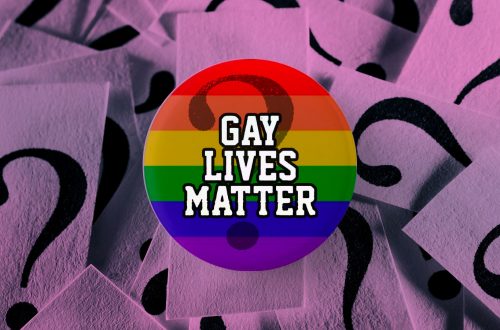This is a cross-post from Student Rights
Last week both Yusuf Chambers of the Islamic Education and Research Academy (IERA) and UthmanLateef appeared at the University of Nottingham as part of ‘Discover Islam Week’.
Given that both these speakers have a record of expressing homophobic sentiment, student journalists both approached LGBT Network members and questioned the two men on their beliefs.
Calls for intolerant speakers to be allowed to speak in order for their bigotry to be exposed are common from students, so you would think that this would have been acceptable behaviour.
Instead a statement has been released by theLGBT Network and the Islamic Society at the university which targets those journalists for trying “to provoke an antagonistic atmosphere” on campus.
In addition to this, the Islamic Society President states that “such attacks were problematic and contributed to a sense of marginalisation and discomfort towards many Muslim students on campus”.
That challenging someone with a history of homophobia over their bigoted views can be described as an ‘attack’ and as marginalising Muslim students is incredible, and demonstrates a deep intolerance of legitimate criticism.
It also highlights that the ‘free speech’ defence given by those who argue against preventing hate preachers from speaking on campuses is utterly invalid if challenge of intolerant views is viewed in this way.
On top of this, the statement also attempts to whitewash Chambers and Lateef’s views,arguing that any “allegations of homophobia [are]based on misquotations and out of context statements”.
Since one student says Lateef responded to questions at the event by stating “…we are not homophobic, we just hate homosexual acts”, this attempt to exonerate him seems to have little weight.
Furthermore, he has been recorded in the past stating that “we don’t accept homosexuality…we hate it because Allah hates it”.
Meanwhile, Chambers has been accused of supporting the death penalty for homosexuality, saying“JazakAllah Khair (May Allah grant you goodness) for clearing that issue up” when told that “homosexuality is forbidden in Islam and the punishment for homosexuality is death”.
In this video (47:40) he says of homosexuality; “don’t do that stuff because it’s bad for you”, and states of AIDS “I would like to stop that hurt and that punishment from happening to you [homosexuals]”.
These quotations are most certainly not taken out of context, a phrase which is too often used to dismiss criticism out of hand and in the words of Sarah Brown accept “blandly misleading equivocations”.
If students wish to invite speakers with intolerant views onto campus then they should be able to defend that on stronger grounds than claiming they have been “unfairly targeted” and making vague references to Islamophobia.
The Islamic Society asks to be “extended the same respect as all faith societies”, and it does not need to be said that this should of course be the case.
However, they should also expect to face the same scrutiny as any other student group and be called out if they invite homophobic speakers. To attack those students who do so is disgraceful.
